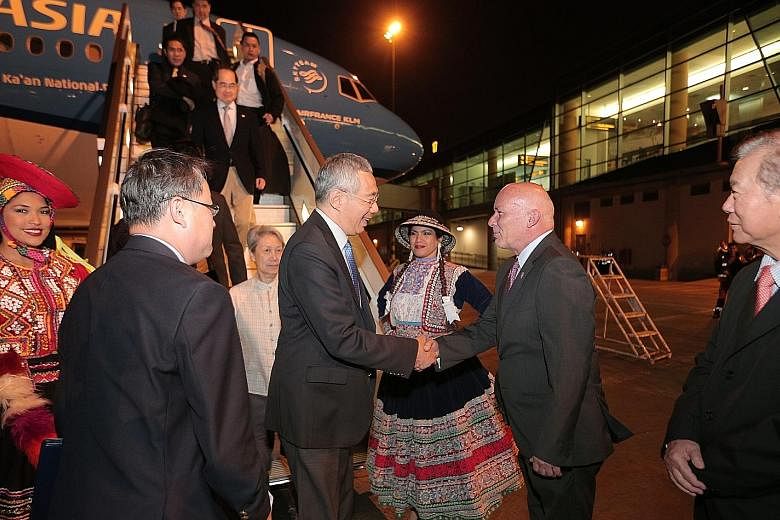Trade and foreign ministers from 21 economies in the Asia-Pacific region began their annual summit yesterday, with two days of meetings.
This year, the ministers of the Asia-Pacific Economic Cooperation (Apec) group will pay even closer attention to making sure that globalisation will lead to job creation and higher incomes as well as a better standard of living for their people across the board.
The reason is the growing resistance to globalisation.
As Dr Alan Bollard, executive director of the Apec Secretariat, said in a statement: "The need for a new, progressive direction for globalisation and trade that opens up job creation, enhances social mobility and increases wages is up against a diminishing appetite for policies that could foster this outcome."
Apec's 21 economies are home to three billion people and account for half of global trade, and its push for freer trade has made the region more prosperous in recent decades.
But there is a sense that the prosperity is not evenly felt among some segments of the population - especially those left behind by disruptive technology. It has fuelled anti-globalisation sentiments and the rise of political leaders opposed to opening up trade, the most recent of whom is United States President-elect Donald Trump.
Dr Bollard told The Straits Times a key concern at this week's meetings will be the need to retrain workers with skills to take on new jobs. "With technological development, we're worried about bifurcating the workforce into the very low-skilled and the very high-skilled," he said.
Peru's Ambassador Luis Quesada, who chaired discussions among senior officials ahead of meetings, said: "There is a firm belief across Apec in the enduring power of globalisation and trade to build prosperity in the region. The advantages of these forces must be more evenly felt to sustain public confidence in them."
Singapore's Minister for Trade and Industry (Trade) Lim Hng Kiang and Senior Minister of State for Foreign Affairs Maliki Osman are taking part in the Apec ministerial meeting, ahead of the Apec Economic Leaders' meeting tomorrow and Sunday, which Prime Minister Lee Hsien Loong will attend.
PM Lee arrived in Lima on Wednesday night (Thursday morning Singapore time) and was greeted by Peruvian Minister of Foreign Commerce and Tourism Eduardo Ferreyros Kuppers. Mr Lee noted in a Facebook post yesterday: "Peru's openness to trade and its rich culture - where ancient Inca heritage meets European, African and Asian influences - make it a fitting host for this round of Apec meetings."
Leaders of the 12 countries that signed the Trans-Pacific Partnership (TPP), including Singapore, will also meet on the sidelines of the Apec summit to discuss a way forward for the pact, which Mr Trump is opposed to.
Apec ministers will also discuss a study on the proposed Free Trade Area of the Asia-Pacific that seeks to include all Apec members. They will review cooperation in areas such as e-commerce and food security, and look into ways to help small businesses benefit from free trade by tapping overseas markets.
Dr Bollard said Apec's voluntary approach differentiates it from other legally binding pacts "that may raise red flags over sovereignty issues and incite domestic anxiety".
He added: "In the current environment, the region's soft approach to globalisation and trade could be the best way forward."

